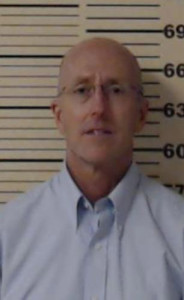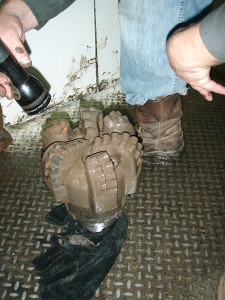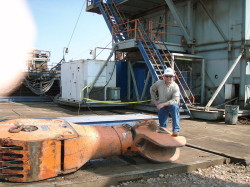Monthly Archives: June 2014
Tod Kelly explains why AT&T is terrible and what it says about capitalism. In the comments, I shared my own experiences with AT&T and commented a bit about Verizon and the industry.
Coincidentally, as this was going, someone on Twitter someone asked:
Who likes Verizon? Who likes ATT?
— Martin Scorsese (@scorsesemartin) July 1, 2014
To which I responded:
@scorsesemartin Verizon is evil, but good. AT&T is better, but worse.
— Will Truman (@trumwill) July 1, 2014
I got a couple retweets, so I assume at least a couple people knew what I meant by that. Anyhow, less than a minute later:
@trumwill I noticed your tweet! Are you experiencing any service issues w/your Verizon Wireless phone? If so, share details, I can help!^AC
— VZW Support (@VZWSupport) July 1, 2014
I was actually complimenting Verizon’s service. I give them points for being on-the-ball, PR-wise.
Still evil.
Clancy lost her drivers license and we’re set to get on a plane tomorrow. So I want to repeat this complaint:
The point of having identification at the airport is not to make sure that you have your papers in order (unless you’re leaving the country). The point of having identification at the airport is to ascertain or validate your identity.
Your driver’s license or passport need not be current in order to do this. It could have expired yesterday. It could have a hole punched through it because you relocated. You did not cease to be who you were when you got a new license or a new passport.
Granted, if you’re talking about identification that is fifteen years old, maybe the license isn’t the best way to ascertain your identity. But two of the three licenses I had would have been valid had it not been for a relocation.
Because we have straightforwardly accurate identification in the form of old drivers’ licenses. Contrary to the title of this post, she did not actually cease being herself. Her address changed (she can provide proof of address, if that matters), and she is no longer eligible to drive under the license in Arapaho. But her identity? Hasn’t changed.
The only danger here is that by allowing expired drivers licenses, a terrorist or something could get a hold of someone’s DL that they look vaguely like. Since it’s an old license, the previous person may not notice. So there is a slightly elevated risk, I suppose. But get real. First of all, that sort of thing could happen anyway because not all expired licenses have the hole punched.
It was a positive development when DMV’s started allowing us to keep old DL’s with a hole punched in them precisely for the reason that the TSA is rejecting here. Apart from the ability to drive, or the address on the license, it’s helpful to be able to identify that you are a person and you are this person.
Clancy is going to get another copy of her license. She may or may not get the physical license today. If she gets a temporary one, the TSA will probably allow that. They have in the past. Which only adds to the ridiculousness. Temporary licenses are easier to forge and the pictures on them are less identifiable, then her no-longer-valid Arapaho license.
Mark Mayfield was a scumbag. If you don’t recognize the name, don’t feel too bad because I didn’t either. Mayfield was arrested in conjunction with an egregious invasion of privacy that occurred during the contested Mississippi Republican primary:
Authorities say the vice chairman of the Mississippi Tea Party and two other men conspired with Clayton Kelly to photograph U.S. Sen. Thad Cochran’s bedridden wife in her nursing home and create a political video against Cochran.
Mark Mayfield of Ridgeland, an attorney and state and local tea party leader, was arrested Thursday along with Richard Sager, a Laurel elementary school P.E. teacher and high school soccer coach. Police said they also charged John Beachman Mary of Hattiesburg, but he was not taken into custody because of “extensive medical conditions.” All face felony conspiracy charges. Sager also was charged with felony tampering with evidence, and Mary faces two conspiracy counts.
Mayfield recently committed suicide.
 The issue is that while Mayfield was (at least arguably, pretty certainly in my book) guilty of criminal trespass, the evidence does not actually support the charges against him. I could be convinced otherwise, but felony exploitation is supposed to result in monetary gain which did not occur. And while the pictures were certainly not decent, it seems like a stretch to me to say they were indecent in a lewd or licentious manner which by every account I have read is the intent of the law. A case can perhaps be made that the spirit of the first law was broken because there was an attempt at non-monetary gain, but the letter of the law was not.
The issue is that while Mayfield was (at least arguably, pretty certainly in my book) guilty of criminal trespass, the evidence does not actually support the charges against him. I could be convinced otherwise, but felony exploitation is supposed to result in monetary gain which did not occur. And while the pictures were certainly not decent, it seems like a stretch to me to say they were indecent in a lewd or licentious manner which by every account I have read is the intent of the law. A case can perhaps be made that the spirit of the first law was broken because there was an attempt at non-monetary gain, but the letter of the law was not.
In other words, though it pains me to say it, as rotten as he was this comes across to me as a case of over-charging of the sort that I would otherwise condemn. So I feel the need to condemn it here.
While I am rallying up (weak) defenses of the indefensible, Jessica Valenti makes an outstanding point in The Guardian and penis-texters:
No matter how you feel about these men and their politics or work, let’s be clear: they are being punished for acts of which they were the victims. Jennifer “Ruby” Roubenes Allbaugh, the woman who posted Kuhn’s alleged picture, told a reporter that she was seeking “revenge” and tweeted “I hate you, AJK”. The Twitter user who outed her relationship to Schindler and apparently allowed a third party to post the picture of his penis only refers to herself online as Leslie, but she tweeted on Tuesday, “I wanted to inform his wife & embarrass him”.
Revenge porn, which will soon become illegal in New York state and was already made so in several others, is meant to shame, humiliate and potentially ruin the lives of its victims. This week’s episodes, though, have been played more for laughs than seen as serious crimes – perhaps in part because they happened to men. But policy has only recently caught on to how devastating revenge porn can be to all its victims.
Like most people, I have not felt much sympathy for the likes of such people, but she actually makes a pretty good point. I think by instinct, I tend to think of a man who would do such a thing in the context of a sexual harasser, but I’m really not sure how it differs from examples of women sending sexual pictures of themselves to men who then pass the image on. Valenti makes a serious case that I should think about these penis-texting incidents differently.
Ordinarily, I wouldn’t spend an hour watching a TV show about Dukes of Hazzard, but things just kind of fell into place for it.
It really is interesting the relationship CBS had with ruralia. Shows in rural America were very, very successful for the network, and they always seemed unhappy about it.
It’s not too much unlike Fox’s relationship with Married With Children. Very successful show that Fox always seemed more embarrassed about than proud of.
A stranger walked up to me. “You really should have shaved before coming here.”
“What?”
Sigh. “Nevermind. I need the [something something], where is it?”
“I have no idea.”
Sigh. Grunt. Walks away.
It occurred to me later that he thought I was an employee who showed up without grooming himself appropriately, who didn’t know where stuff was, and who was inarticulate about it. I was wearing a “company shirt” (golf shirt with a logo above the pocket)… but not Petco’s.
 Daniel Drezner thought his experience in Ukraine was outdated because it’s been twenty years. Turns out, he’s wrong.
Daniel Drezner thought his experience in Ukraine was outdated because it’s been twenty years. Turns out, he’s wrong.
Separatists in Ukraine have taken to waving the Confederate Flag (sort of). They’ve also tried to re-start a WWII tank.
Silicon Valley has more employees from Texas than India.
If McDonald’s in Alaska can afford to pay their workers more than they are paid in Texas, why can’t they pay that much in Texas? Adam Ozimek response. A Walmart in North Dakota is paying $17/hr. Ahhh, the bargaining power of labor shortages.
646,000 new manufacturing jobs added from 2/10 to 5/14!
Republicans talk about wanting to reduce government, but British Conservatives are working hard it.
The hard life of liberal gun lovers.
According to Pew (Warning: as reported by Townhall), the notion that the political dynamics of the US have primarily been a case of the right moving rightward and the left standing still (or dragging to the right) is inaccurate.
Japan has awesome high speed trains. Here’s why.
Rail in the US is very expensive.
-{This is a crosspost of my submission to the Work Symposium over at Ordinary Times.)
 When we moved from our previous home in the Mountain West to our current one in the Mountain East, it was a very long and stressful drive. The best evening we spent was in Ohio, where we somehow ended up snagging a hotel room at a rustic golf resort hotel off Kayak. Our least pleasant is equally as easy to determine: Dickinson, North Dakota. Hotel rooms in Dickinson were virtually non-existent. We found a Super 8. The outside whole hotel smelled like sweat and cigarette smoke. Our room hadn’t been cleaned when we got it. Housekeeping – or somebody – stole my daughter’s Cat in the Hat book.
When we moved from our previous home in the Mountain West to our current one in the Mountain East, it was a very long and stressful drive. The best evening we spent was in Ohio, where we somehow ended up snagging a hotel room at a rustic golf resort hotel off Kayak. Our least pleasant is equally as easy to determine: Dickinson, North Dakota. Hotel rooms in Dickinson were virtually non-existent. We found a Super 8. The outside whole hotel smelled like sweat and cigarette smoke. Our room hadn’t been cleaned when we got it. Housekeeping – or somebody – stole my daughter’s Cat in the Hat book.
 Dickinson is over two hours south of Williston, North Dakota, which is the focal point for the oil boom that has come to define the state. I thought that would be enough distance from all of the activity that we would be able to avoid what we weren’t.
Dickinson is over two hours south of Williston, North Dakota, which is the focal point for the oil boom that has come to define the state. I thought that would be enough distance from all of the activity that we would be able to avoid what we weren’t.
The previously small town of Williston has been getting a lot of national press lately due to the insanity that has followed the oil boom. There was initially some positive coverage, but it was quickly followed by a different type of article. One that stated, in effect, the economic boom is great for some, but… but… but… there’s crime, sexual harassment, housing shortages, doctor shortages, and on and on.
The problems range from annoying to serious, but the overall tone I think gets it backwards. It’s not that there’s a great things but all of these problems. It’s that there are these problems, but there is this great thing!
 I sacrificed my career for my wife’s. Her career needs resulted in five moves over ten years, including to places that are inhospitable to a career in IT. I made the most of every landing while I could, but each new location meant a step back from the promotions and capital I’d built at the previous. Then we landed in ruralia, and there simply were no opportunities. While there, our daughter was born and I became a stay-at-home father.
I sacrificed my career for my wife’s. Her career needs resulted in five moves over ten years, including to places that are inhospitable to a career in IT. I made the most of every landing while I could, but each new location meant a step back from the promotions and capital I’d built at the previous. Then we landed in ruralia, and there simply were no opportunities. While there, our daughter was born and I became a stay-at-home father.
I find myself preoccupied at times with what happens to us if something happens to my wife. She’s ineligible for any sort of significant life insurance. I’m beyond mere long term unemployment. I would also have a daughter to take care of, which means that I’m not sure I would even have the breathing room to “start at the bottom” in the way that I did. Even with the recognition that I have it better than so many, it’s a sense of vulnerability I have never really experienced before.
 If, heaven forbid, something did happen to her, I would not start looking for work in North Dakota. I would start in my home town, to be near my family. Or my wife’s home town, to be near her’s. I’d exhaust every personal contact that I have there and elsewhere. I’d ask former bosses and if I needed to I would move back to the Mormon West if that was where opportunity is. I’d look in Kansas. I’d look in South Dakota.
If, heaven forbid, something did happen to her, I would not start looking for work in North Dakota. I would start in my home town, to be near my family. Or my wife’s home town, to be near her’s. I’d exhaust every personal contact that I have there and elsewhere. I’d ask former bosses and if I needed to I would move back to the Mormon West if that was where opportunity is. I’d look in Kansas. I’d look in South Dakota.
If all else failed, though, it is of enormous relief to me that there is a North Dakota. Some place that could very likely use me if I have nowhere else to go. We might be living in a repurposed FEMA trailer, but there is a place to go. I would worry about crime and specifically my daughter, but there is a place to go. Life is accepting that not everything can happen on your terms, and if North Dakota’s terms are what there are, I’m glad that they are there, to the extent that they are, for however long they are.
 By the time I was in high school, I had resolved never to leave the city where I grew up unless I needed to. Fortunately, it was a big city with enormous opportunity where having to leave was unlikely. I grew up there, I went to college there, and it seemed unlikely that anywhere could offer me what that city could. I wanted to be near family. I wanted to be near friends. Big city amenities with small city prices. Who could ask for more?
By the time I was in high school, I had resolved never to leave the city where I grew up unless I needed to. Fortunately, it was a big city with enormous opportunity where having to leave was unlikely. I grew up there, I went to college there, and it seemed unlikely that anywhere could offer me what that city could. I wanted to be near family. I wanted to be near friends. Big city amenities with small city prices. Who could ask for more?
Then I met my wife, with her plans to go west and her need not to be in a city. Her professional training would be built around living somewhere else. So for love, and not money, I packed everything in my Ford Escort and left. Into great personal and professional uncertainty. Into a part of the country that was very much not North Dakota. Or, for that matter, the place I left. It was incredibly difficult to leave my family behind. I still lament, at times, the social network I left behind and have been completely unable to rebuild in one move after another.
 Whether for love or money, leaving is an incredibly difficult thing to do. Sometimes, it’s an impossible one. It’s financially impossible when you’re underwater on your mortgage or you have a spouse who is nailed down where you are. It’s personally impossible if you have family to take care of. Moving for money is also not a broader solution to the economy. There are 20,000 jobs in North Dakota, and far more than that looking and waiting for work.
Whether for love or money, leaving is an incredibly difficult thing to do. Sometimes, it’s an impossible one. It’s financially impossible when you’re underwater on your mortgage or you have a spouse who is nailed down where you are. It’s personally impossible if you have family to take care of. Moving for money is also not a broader solution to the economy. There are 20,000 jobs in North Dakota, and far more than that looking and waiting for work.
For some, though, it represents a fantastic opportunity. A friend of mine from out west has hit a dead end, career-wise, and is considering getting a commercial drivers license and heading east. It would mean being away from his wife and step-children for six months of the year, but in that time he can earn more than he earns year around where he currently lives. People like myself who need reintroduction into the workforce when all else fails. Kids just getting started in need of experience and job skills.
 When I was substitute teaching in a decaying Mountain Western town, I was always depressed at the dim prospects of a lot of the students I saw over. Many of the best and brightest would leave for the bright lights of Denver, Seattle, or Salt Lake City. But the rest? What of the rest? Towards the end of the year I would start getting more high school assignments and I heard a lot of them talking about what they planned to do next. College, for some. Others talked about going east to the oil fields.
When I was substitute teaching in a decaying Mountain Western town, I was always depressed at the dim prospects of a lot of the students I saw over. Many of the best and brightest would leave for the bright lights of Denver, Seattle, or Salt Lake City. But the rest? What of the rest? Towards the end of the year I would start getting more high school assignments and I heard a lot of them talking about what they planned to do next. College, for some. Others talked about going east to the oil fields.
The New York Times published a piece on young people in Montana going straight to the fields out of high school. The piece had a somber tone, but for a lot of the kids it truly is a great opportunity straight out of the gate. There are opportunities for people just graduating college as well, as the South Dakota School of Mines at least temporarily passed Harvard for graduate incomes. Obviously, that’s major-dependent, but opportunities abound.
 I don’t begrudge those who look at North Dakota and think about living in a trailer (or worse) and living amidst the chaos, and simply want no piece of it. I don’t blame those who don’t want to leave family behind. I know that a lot of people can’t. I also know that the life calculations are going to be different for everybody. Ten years ago, North Dakota would have been a lot less unattractive to me than it is now, and ten years from now it will likely be more unattractive, and that’s despite holding a lot of the “me” of the equation constant.
I don’t begrudge those who look at North Dakota and think about living in a trailer (or worse) and living amidst the chaos, and simply want no piece of it. I don’t blame those who don’t want to leave family behind. I know that a lot of people can’t. I also know that the life calculations are going to be different for everybody. Ten years ago, North Dakota would have been a lot less unattractive to me than it is now, and ten years from now it will likely be more unattractive, and that’s despite holding a lot of the “me” of the equation constant.
I don’t blame those who don’t want to take the journey. I can’t blame those who can’t. I am not unsympathetic to those who don’t want to. But I wholeheartedly celebrate those who can and do.
 Beneath the weeds, through all of the chaos, lies opportunity. The vast majority of the chaos caused by that very opportunity. It’s the bad that comes with the good. They are all textures of an unspeakably beautiful painting. When you attract the good, you attract the bad. Rapid growth is by its nature chaotic, but with it lies opportunity. Beautiful, scary, wonderful, chaotic, glorious opportunity.
Beneath the weeds, through all of the chaos, lies opportunity. The vast majority of the chaos caused by that very opportunity. It’s the bad that comes with the good. They are all textures of an unspeakably beautiful painting. When you attract the good, you attract the bad. Rapid growth is by its nature chaotic, but with it lies opportunity. Beautiful, scary, wonderful, chaotic, glorious opportunity.
While it’s not for everybody, and it’s not a universal solution, but for those of whom it is an opportunity? I’m giddy and elated that it’s there.
As time passes, it too will eventually pass. Hopefully it will be because we have made innovations in renewables that render such resource exploitation unnecessary. Or else, eventually that particular well will run dry. Perhaps to be replaced by another somewhere else, or perhaps not. Maybe replaced by some new wizbang technology that will allow us to turn the entirety of northern Nevada into a power generator for the entire country. Hopefully, some new industry will come along somewhere and put us to work.
If something else does come along, it will likely cause chaos wherever it occurs. And it will be beautiful.
Libby Watson finds American satire lacking:
That’s part of why British political discourse makes American politics look like tea at the cricket club. When Congressman Joe Wilson yelled, “you lie!” at President Obama, it was a national incident, but raucous shouting at the Prime Minister during Prime Minister’s Questions has been a weekly institution since the 19th Century. We throw eggs at our politicians; we nick their bikes; we certainly don’t stand when they enter the room.
This jeering hatred of politicians is integral to The Thick of It. Malcolm calls minister Nicola Murray a “psycho-fanny,” and violent threats that he’ll “sell off [her] fucking flayed skin” are standard. And these politicians are worthy of hatred. Nicola is a total “omnishambles;” her predecessor Hugh uses the story of his adviser Glen’s special-needs son to lie to Parliament. The advisers are as terrible. Malcolm is the “Malchiavellian” scumbag behind it all, but every single one is slimy, backstabbing, and horrible. Ollie is a “man worm,” who helps depose both Nicola and Malcolm. Others trade nicknames for a mentally ill man: “The fucker’s a nutbag.”
It’s certainly true that our style of politics – as acrimonious as it often is, can be compared as “gentle” compared to British politics. It also makes sense to me that The West Wing is a truly American type of program.
Having seen both, I also mostly with her comparisons of the American and British versions of House of Cards, though that’s more complicated than it initially appears. Our Underwood was, I’d argue, actually considerably more villainous than their Urquhart. The British version, though, had a very American over-the-top feel while British satire tends to be more… patient.
I think Watson really nails it here, though:
It’s not only hatred, though—Brits don’t have the forgiving impulse that America has for its politicians. The fall-and-redemption story is familiar in American politics. Last year, we got a Congressman Mark Sanford as proof. George W. Bush’s paintings of dogs hang on the national refrigerator, with him trotting them out in a fluffy Today Show interview with his daughter.
And I think the the politics discussed throughout is symptomatic of our interest in the redemption narrative rather than being about politics in particular.
To take it out of our statehouses and DC, I consider The Office to be indicative of this. On first blanch, their David Brent was two-parts creepy and one part annoying. Our Michael Scott was two-parts annoying and one-part creepy. As time progressed, the difference became more increasingly important. Early on in the series I wrote the following about Scott:
The most telling scene with Michael Scott was when he was showing a video of his younger self on a kiddie show of some sort. He is asked what he wants most from life and he says it’s to get married and have 100 kids so that none of them could decline to being his friend. One of the saddest scenes on television pretty much ever.
Frankenstein’s Monster said something along the lines of “I am a monster because I am in pain.” Whenever I run across someone either in real life or in entertainment that has an emptiness in their heart, it makes me very wary.
Michael Scott’s younger years are never spelled out and though he likes to talk about himself he doesn’t really do so in honest or accurate terms, so we’re left to speculate. Nonetheless, it seems relatively apparent to me that Michael hasn’t just been hurt by what social rejection almost certainly took place in his past, but rather that he’s been scarred by it. I see within him a certain darkness in his soul where the part of him that is loved and accepted should reside. That’s not to say that he is completely unloved and unaccepted as his mother seems to love him (if not respect him) and Dwight functionally (if not earnestly) respects him, but it’s clearly not enough.
The dangerous Scott painted in this portrait is beyond redemption. And yet, however, he was redeemed. It’s not just that Scott had over seven seasons to find his redemption while Brent had only two. Brent could have had ten and it wouldn’t have mattered. Not only because of the two-part-one-part difference, but because Scott’s happiness and Brent’s being forced out were both natural extensions of how each side likes our stories told.
Whether about politics or a guy running an office.
Intellectually and artistically, I have a preference for the British model. Our House of Cards and The Office are more entertaining, but theirs are stories better told. But I have the heart of an American, I suppose. The British version of the Office was simply hard for me to watch. House of Cards was easier, but I am still disinclined to ever go back and watch it. I seem to appreciate their approach from a mild distance.
German prison inmates want to unionize.
Food establishments continue to dip their toe in automation.
We Americans work less than we think we do.
It’s the least educated and least skilled where unemployment tends to be highest. Yet theirs is also the sector where the job market is improving the fastest.
Patrick Ruffini looks at the data wars between Democrats and Republicans, and how the latter is trying to catch up.
Physicians used to be a Republican constituency, but not so much these days. I wrote about the shift in 2011. The Obama Administration has done a lot to reach out to primary care docs, which is where a lot of the shift is occurring.
A frequent suggestion for lowering health care costs is to cut physician salaries. Kevin Pho explains that other things might need to change to facilitate that. Benjamin Brown has more.
While we’re looking at such things, what’s up with administration costs?
Transparency in health care pricing, though, may be worth a look.
In France, President Hollande is trying a bit of statecraft…

